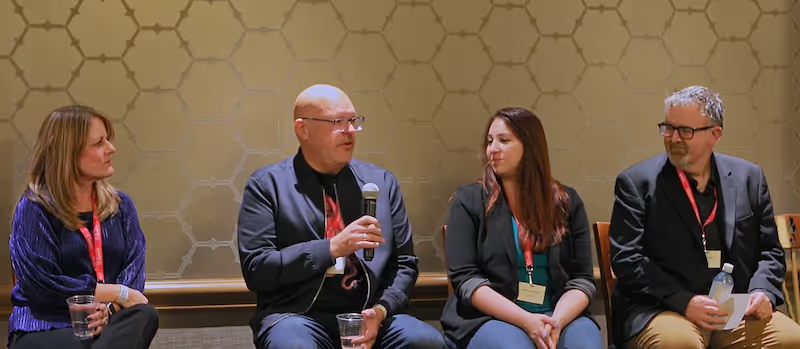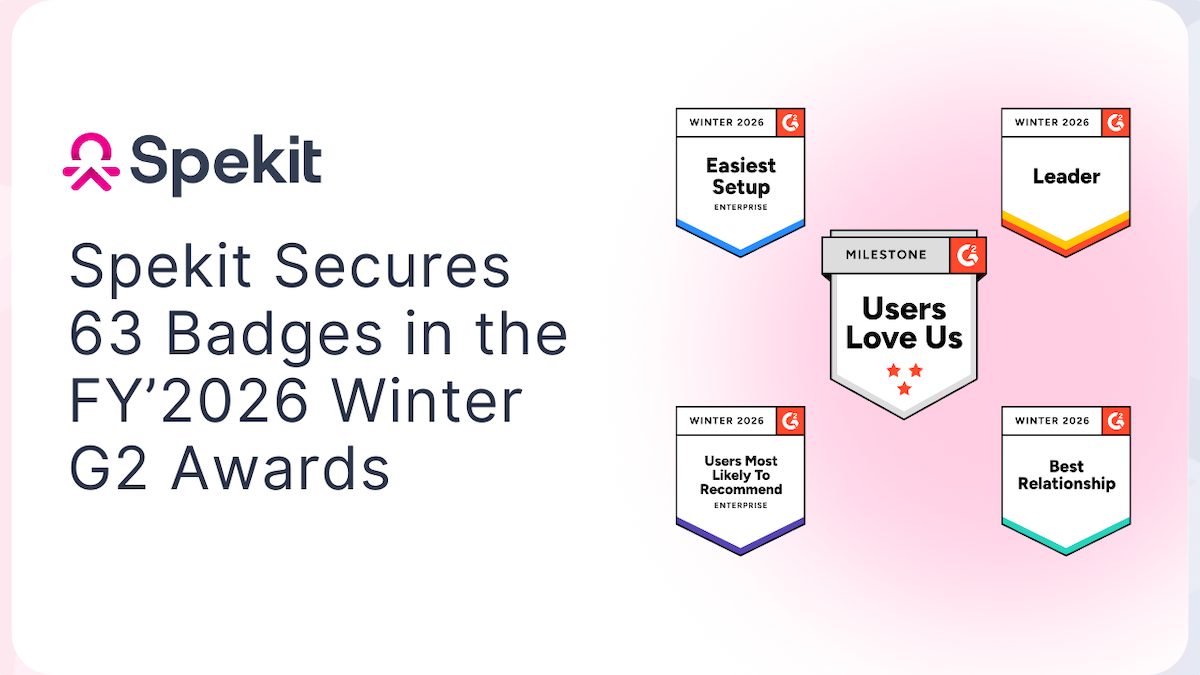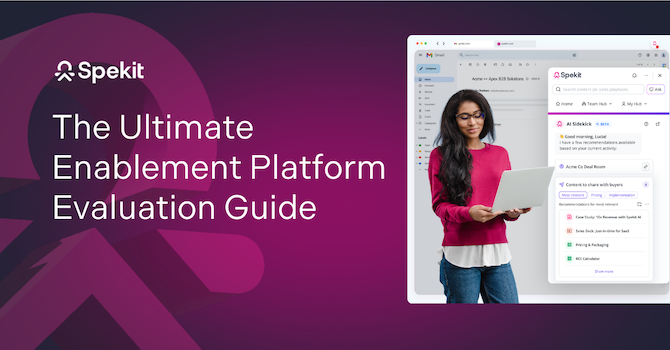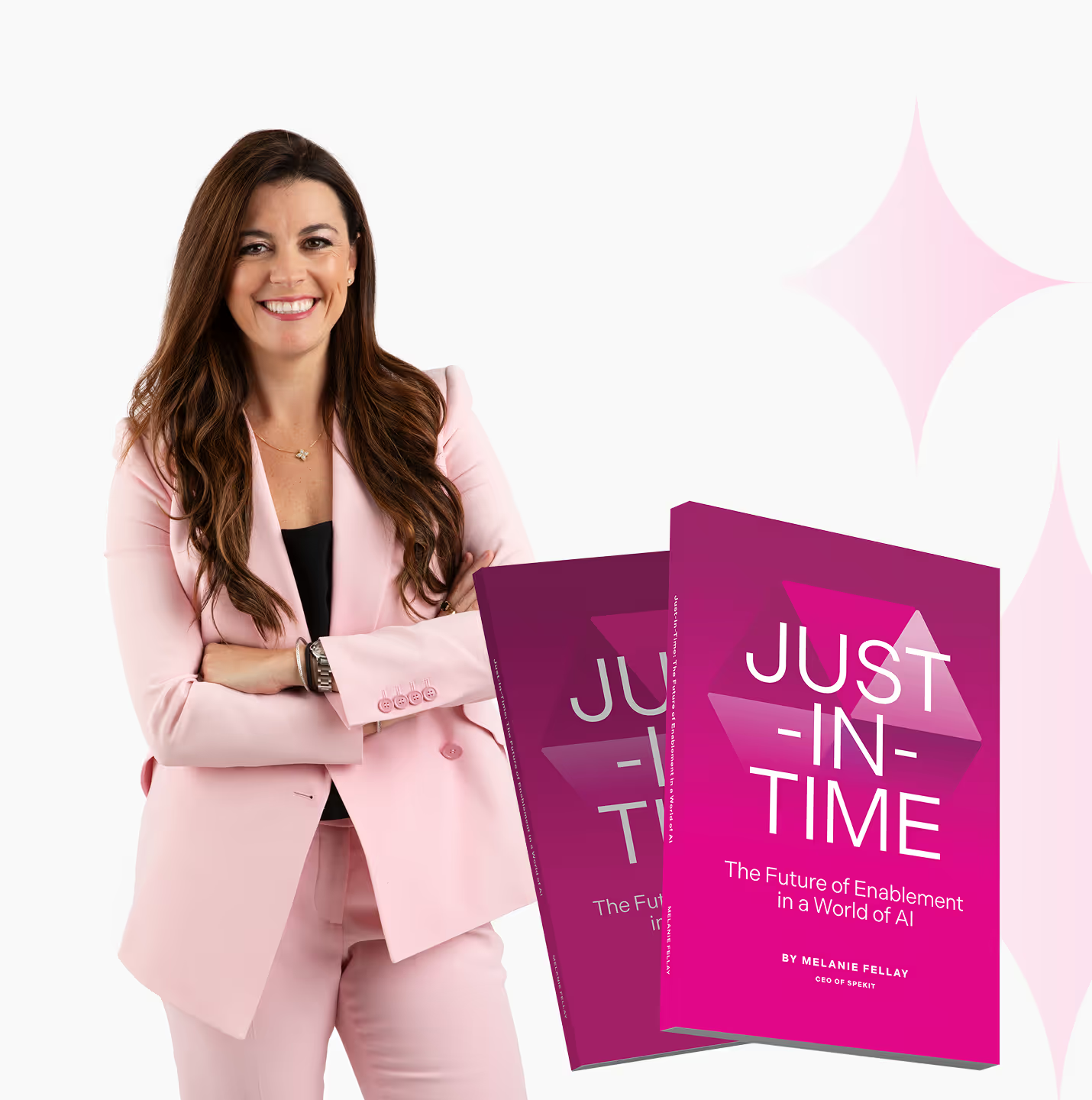Creating a winning enablement strategy can be tricky—especially when we consider that what worked last year might not work today. But it’s absolutely essential to put in the effort. Why? Companies with a formal enablement strategy see a 5-percentage-point higher win rate than those without one—and they’re twice as likely to see an increase in both win rate and quota attainment year over year.
In this article, I'll cover how to create a successful enablement strategy, with expert insights from Christa Scollard, Digital Adoption Lead at Jackson & Coker; Richard Thibault, Head of Revenue Enablement at Q4; Gabby Arencibia, Director of Field and Channel Marketing at Samba Safety; and Adam Stewart, VP GTM Innovation at Introhive.
Have some time on hand? Watch the full panel session here.
What’s Considered Enablement?
When we talk about enablement, we’re often referring to both sales enablement and revenue enablement, which go hand in hand.
Sales enablement is the strategic process of equipping sales teams with the tools, content, and knowledge they need to engage potential customers and reach quota attainment.
Revenue enablement is the process of helping all customer-facing teams maximize revenue throughout every stage of the buyer’s journey.
Components of an Enablement Strategy
A successful sales enablement strategy template includes:
- Content Management: Forrester found that 65% of enablement content goes unused. A sales and revenue enablement team must ensure that content is accessible and able to be used where it will have the most impact.
- Training and Coaching: According to research, effective sales enablement training can increase win rates by up to 29%. Enablement training leverages a combination of in-person learning, workflow tools, digital materials, and virtual instructions to provide the theoretical and hands-on practical knowledge that sales reps need.
- Technology and Tools: Enablement tools can make your overall strategy even more impactful. Spekit’s just-in-time enablement platform helps revenue teams hit a 20% higher quota attainment and 30% faster ramp time–while allowing them to dedicate an additional 69% more time actually selling.
- Analytics and Optimization: Companies with comprehensive analytics and an understanding of what effective enablement looks like report 7-percentage-point higher average win rates. This component of your enablement strategy can also tie into the need for enablement tools, as companies who leverage enablement tech are twice as likely to understand what effective enablement looks like through analytics.
From the Experts: How to Develop a Successful Enablement Strategy
Let’s hear from the experts on how to build a successful enablement strategy this year.
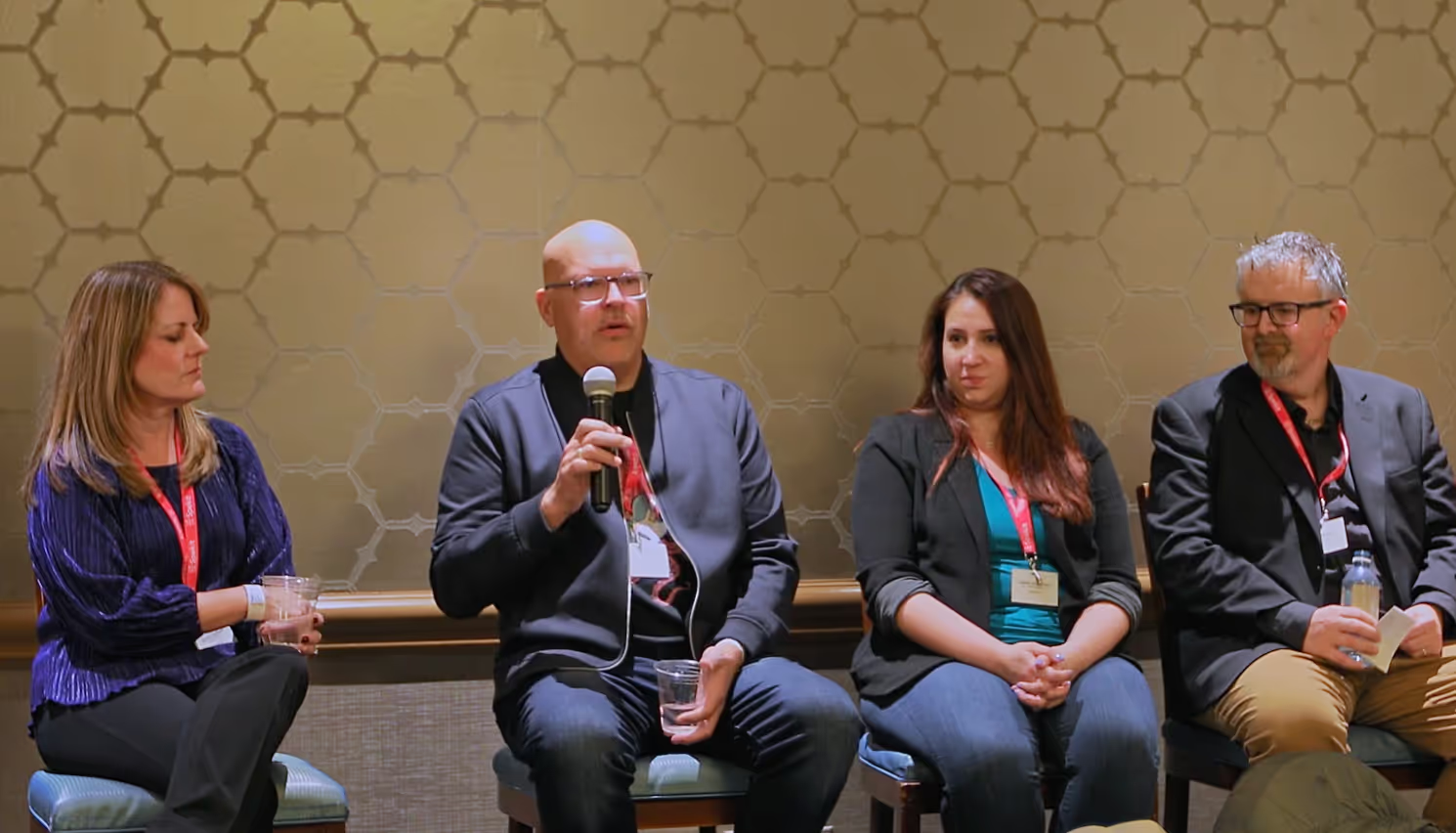
Create One Source of Truth
“We’ve been doing a lot of process changes in our company,” Scollard says when asked about how enablement has changed for Jackson & Coker in 2024. The result is that there are many questions in regard to where to find answers. The solution for Scollard is to create “one voice of how things should be done.”
Creating one source of truth ensures that your customer-facing teams all have access to the same information, which is vital not only internally but also for your prospects and customers. To ensure you’re providing up-to-date knowledge about your product, company, and beyond, you need to know that the source you’re getting that information from is vetted and verified.
Provide Enablement in the Flow of Work
Stewart looks at enablement in the flow of work through the lens of “context switching.” He cites how easy it is to get distracted while searching for an answer—finding yourself sucked into messages, posts, and other questions before you’re able to find the answer you needed in the first place.
“Every time you switch between those screens or those pieces of technology, you lose time, and you lose productivity, and you are delivering a less than stellar experience for your customers,” Stewart says. To improve productivity, it’s essential to have sales reps find answers “in the areas where they’re already working.”
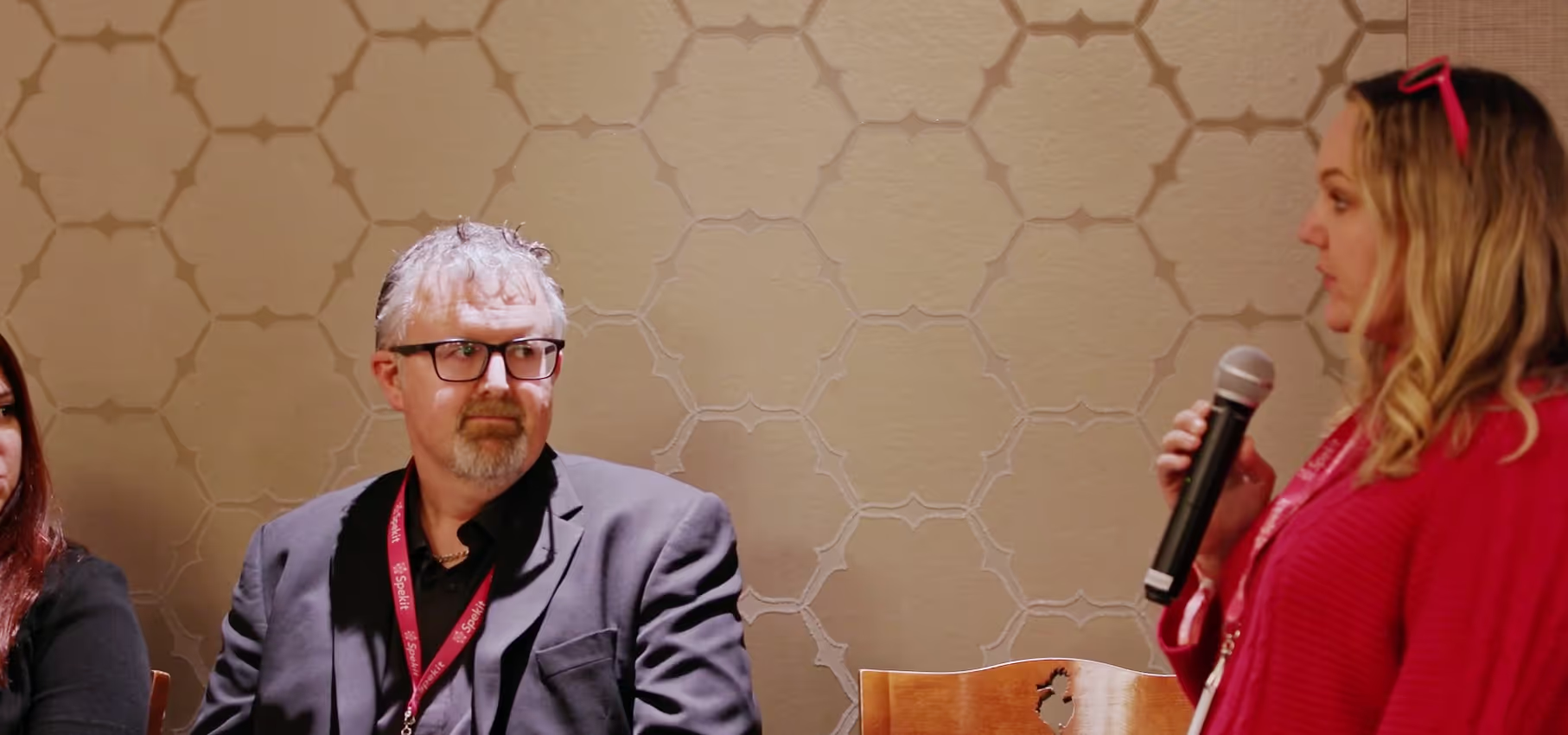
Spekit found that sales professionals spend between three and 11 hours per week or sometimes even more looking for answers. And over 70% of sales leaders spend four or more hours per week answering questions about their tools, processes, and other information reps need to do their jobs.
It's why the Spekit platform was designed from the ground up to deliver just-in-time learning. With just-in-time learning, sales reps get the right knowledge, content, and answers automatically surfaced to them wherever they’re working at just the right time.
Spekit’s AI-powered platform unpacks your employees’ previous training, sales performance, buyer interactions, and more to automatically surface the right resources, content, and knowledge and send it to them on whatever platform they’re already working on.
Mitigate Cognitive Load
At Introhive, one of the key goals of sales enablement is mitigating cognitive load.
“New branding, new pricing, new products being rolled out, changes in the market, what does this persona mean,” are all items customer-facing teams need to be aware of. “We want to make sure that those things are in the tools they’re using every day,” Stewart explains.
One of the best practices in sales enablement is making your training more accessible and avoiding information overload. Offer bite-sized bits of learning so your sales team doesn’t get overwhelmed with how much they need to know at once.
Improve Content Accessibility
When Arencibia started at Samba Safety, she was given a Microsoft Excel spreadsheet of all of the content–some of the content was okay to use while some content was marked “do not use.” She knew she had to change something.
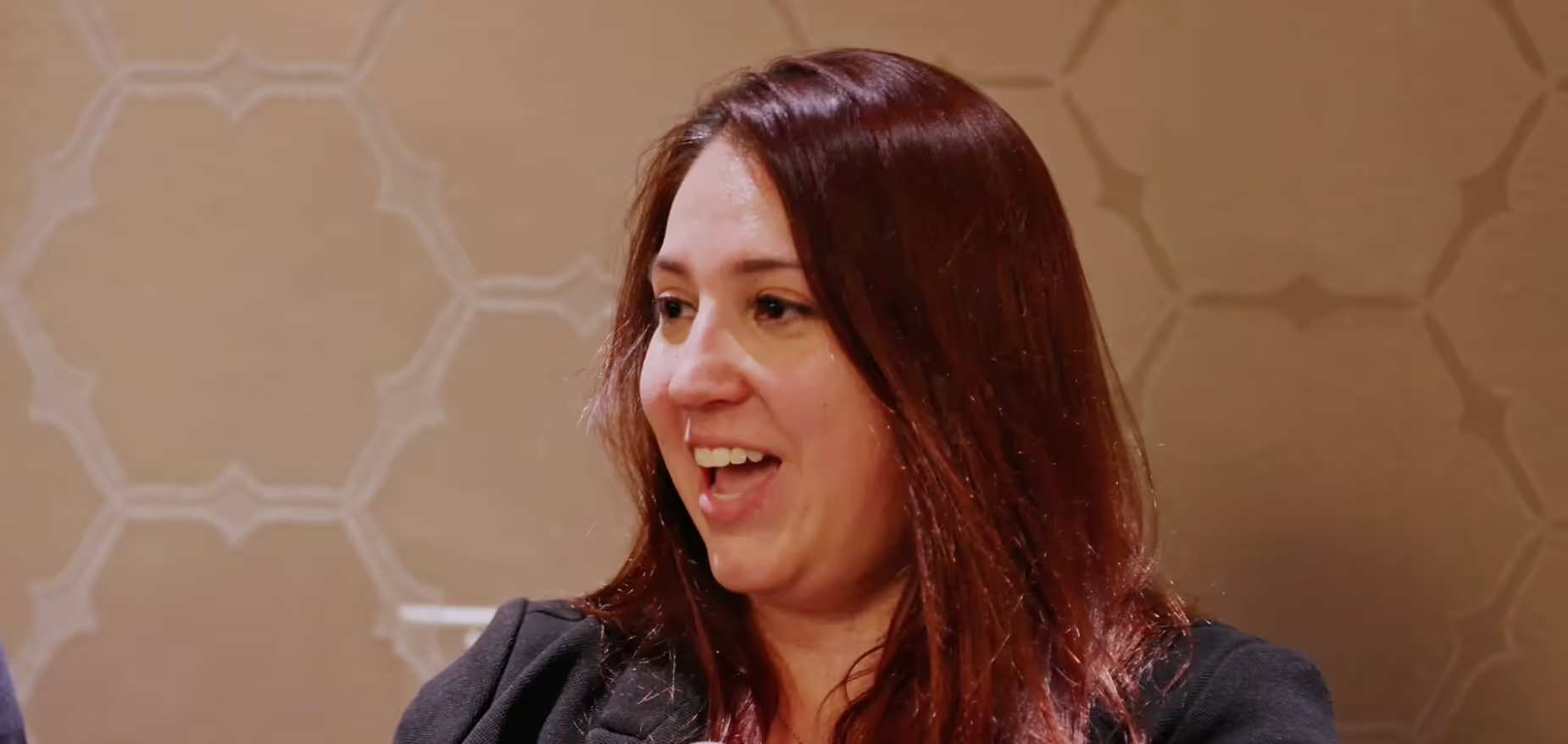
When sales reps would come to her and the marketing team to ask for content and answers to specific questions, she could point them in multiple directions, making it confusing for the salespeople to know just where to look. “There’s so much amazing content that has been built,” says Arencibia, “but you don’t know where to find it, you don’t know how to get to it, and you don’t have searchable ways to do it.”
Sales reps spend, on average, 440 hours per year trying to find the right content to send to prospects. Considering that, currently, sales professionals spend less than 30% of their time actually selling, enablement teams need to do all they can to give them more time in their schedule—and improving content accessibility is a big step in the right direction.
Using a content management system (CMS) helps to keep all your content accessible and in one place. Spekit’s Knowledge Base offers this accessibility as well, but Spekit makes your content even easier to find than your average CMS. You can take your enablement strategy even further with AI-powered content recommendations. Spekit AI analyzes the context and intent of meeting transcripts, emails, and more to automatically surface what content your reps need to close that deal.
Measure the Impact of Content
Another step Arencibia took to improve her company’s enablement strategy is to carefully measure the impact of their content. Beyond making the content accessible, she wanted to optimize the content for use. She wanted to know, “How was it being used by the people the sellers were talking to on a regular basis? That’s pretty key for us to understand.”
Use content analytics to keep track of your sales enablement metrics so you can determine how often your content is being used, how it’s being engaged with, the overall ROI of a piece of content, and more.
More than 50% of businesses want to know how their content influences buyer decisions, and Spekit’s content analytics helps them track everything from content conversion rates to the average time a customer spends on a piece of content.
Personalize Learning
Thibault likens sales enablement training to giving your sales reps two windows to look through. “The rep is looking into a window into a room, and everything they see has to be positioned for them,” Thibault says. But there are all kinds of people going into the room and moving furniture around. This space is not one that they own, and it represents all the information that everyone in the company needs to know, like compliance and legal information.
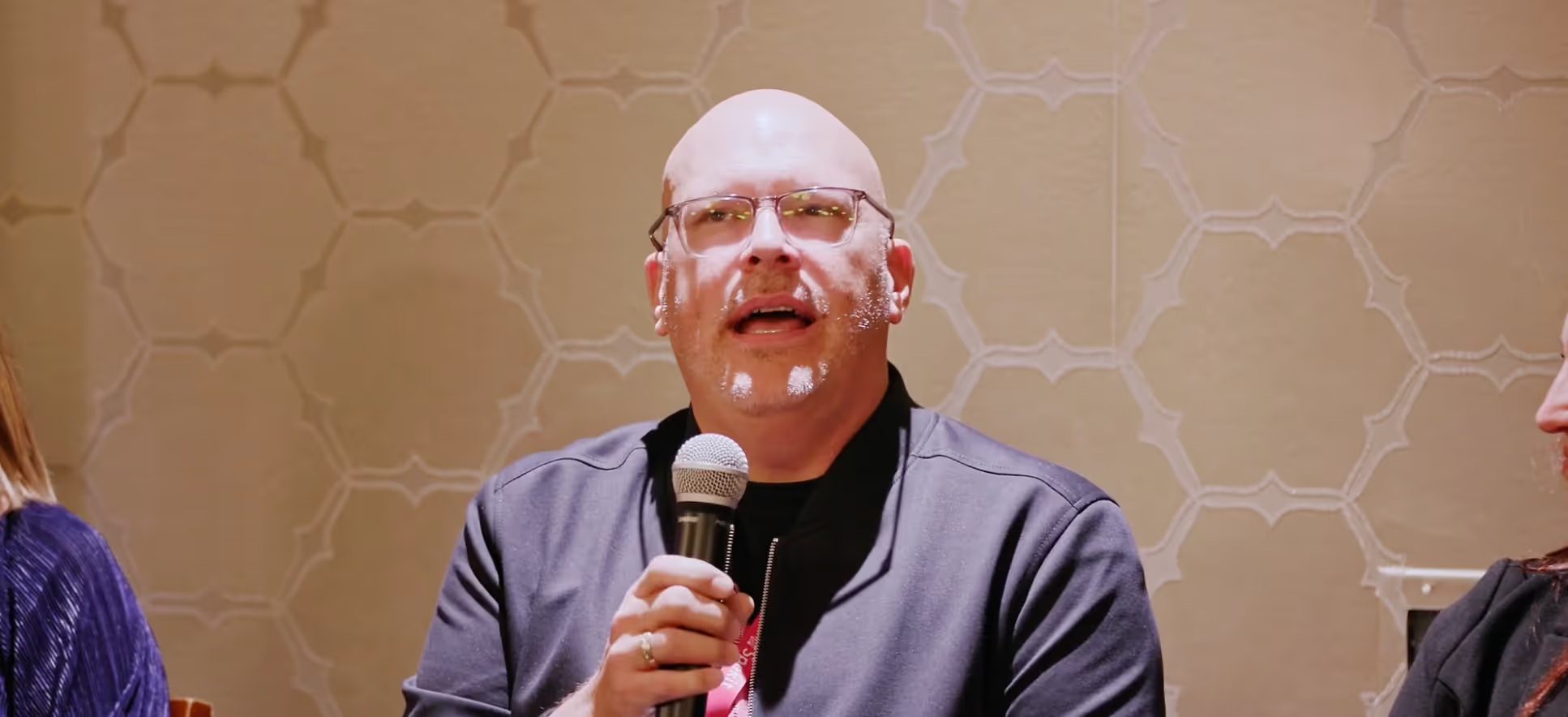
The other window is into a room that is “strictly for the representative.” This room aligns with the personalized workflow a rep needs for information that relates directly to their role. In this room, the sales rep can create an order, or a workflow, that’s just what they need to learn.
The top-performing companies in sales are twice as likely as underperforming companies to customize their employees’ learning paths. Sales leaders raised the productivity of their reps by 25% in 18 months when they started targeting specific skills that the reps needed and tied them to their personal sales goals and growth.
Arencibia is also looking for a future where sales enablement tools focus on personalization. “It’s something that we’ve been asked for repeatedly by our sales team in every aspect,” she says. “If that was a functionality that existed, that would make everybody’s lives so much easier.”
As an AI-powered sales enablement tool, Spekit uses artificial intelligence to surface content personalized to the context of sales rep interactions. For example, analyzing a call summary in Gong and recommending the perfect case study based on the prospect's individual needs and challenges.
Spekit’s generative AI can also create playbooks, scripts, and much more with just a simple prompt, helping enablement leaders develop customized training materials in seconds. And with Spekit’s Knowledge Checks, short quizzes that pop right into a user’s flow of work, sales leaders can gain insight into where an individual sales rep may need more training.
Top Enablement Tools and Technologies
Now that you have an enablement strategy in place, how do you implement it? Use these enablement platforms to give your employees the resources and technology to succeed.
Just-in-time Enablement Platforms
When asked about the future of enablement, Thibault says, “I don’t know that I can predict what’s going to happen in the future, but what I do know is that there will still be more asked of me with fewer tools, fewer people, and less time.”
Scollard echoes this sentiment when she talks about the importance of sales enablement tools “paring down processes.”
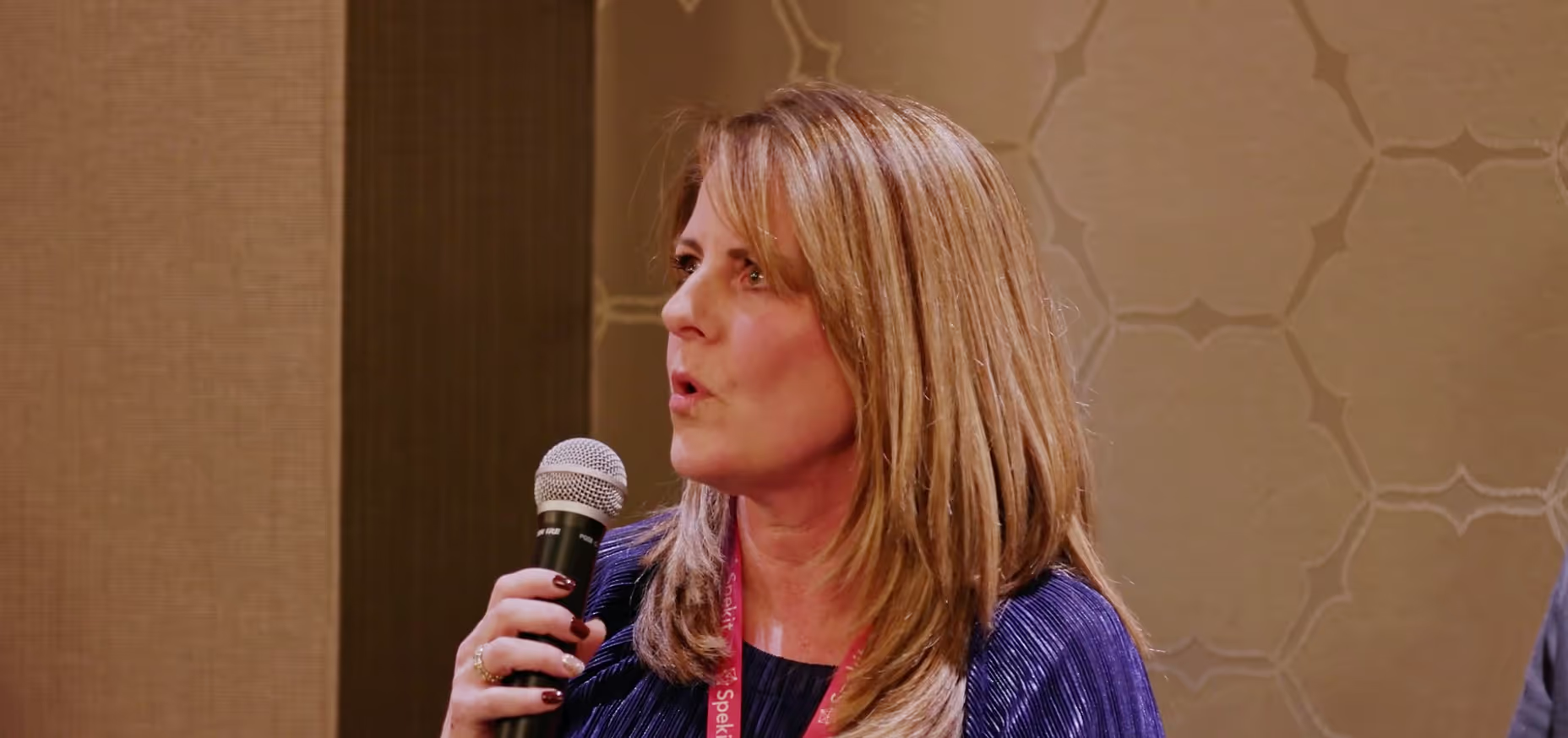
With a sales enablement tool that allows you to connect with reps just-in-time, you can provide contextualized and easy-to-understand training, improve your content utilization, and stop your reps from having to search multiple databases to find answers to their questions.
Customer Relationship Management Tools
Customer relationship management tools (CRMs) offer your sales team a central location to track your customer’s buying journey, which is vital for helping you build that one source of truth. These tools give you insight into who your customers are, what they are looking for, and how your company has already interacted with them.
Customer Conversational Intelligence Software
Stewart utilizes a conversational intelligence tool to follow his sales team’s prospects down the sales pipeline. These tools track your customer-facing teams’ conversations with potential and current buyers to provide them with insight into everything from ways to improve their skills to how to proceed with this buyer’s journey with your company.
“I asked my conversational intelligence tool the other day, which spans across multiple calls,” he says. “It summarized all the different topics we’ve talked about and put together a great, 90-second version of that.”
Improving Your Enablement Strategy
Your enablement strategy is your blueprint for building a plan that sets you on a path for lower ramp-up times, higher win rates, and increased quota attainment. With these learnings, you can develop a strategy that moves your company forward.
A huge part of a successful enablement strategy is using the right tools. What tools are crucial for your enablement strategy this year? Share your tips and let us know what’s worked for your enablement teams.

